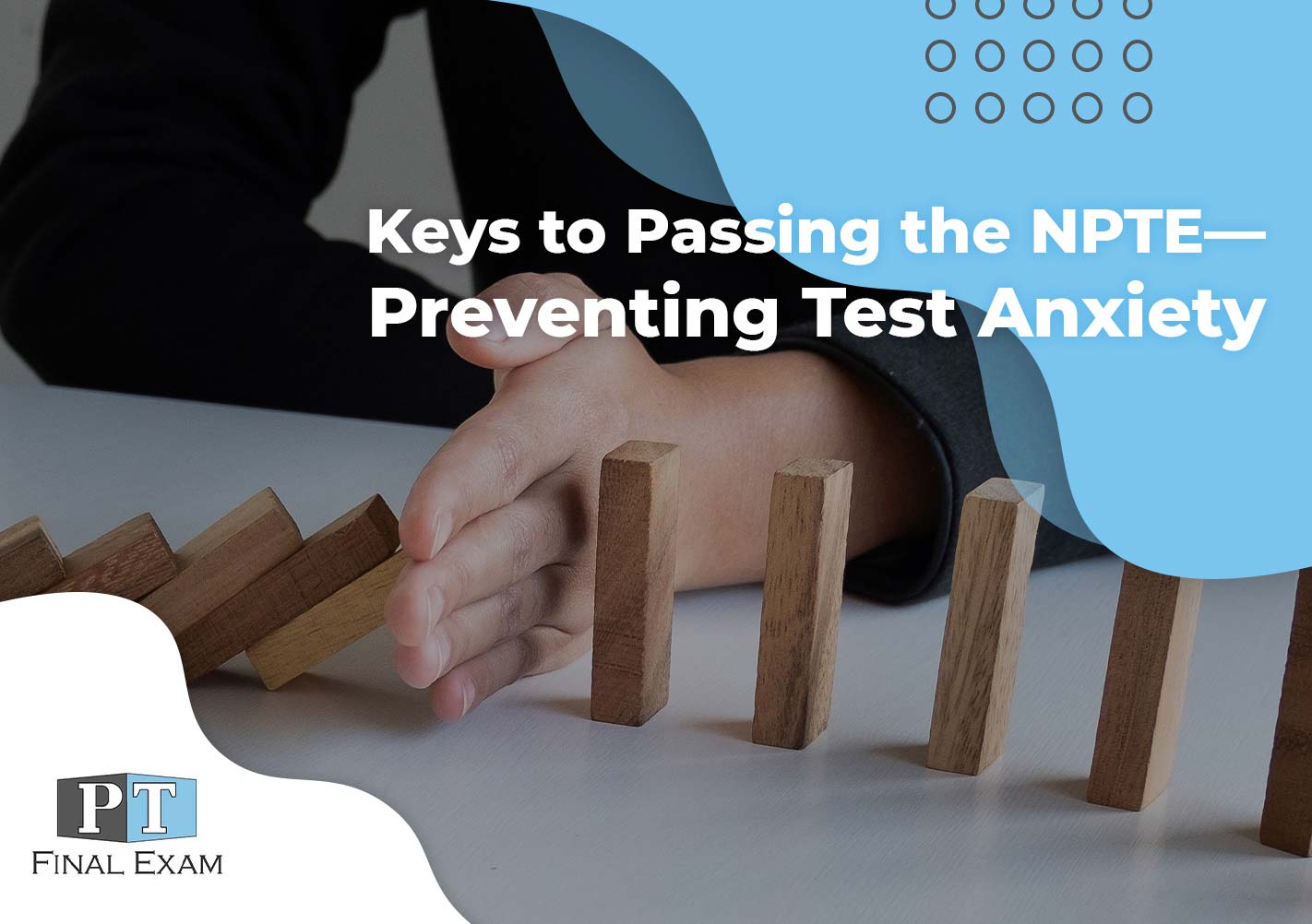You wake up in a panic……
You’re late. You know you’re late. You can’t fight the feeling that you are sooo late and your feet are trapped in cement.
This is the same dream that so many PT students share on the night before the exam. As for me, I had it for a week before this life-changing exam.
The Good News
The good news is that there is an antidote to the worry and stress that surround exams like the NPTE. The primary key is preparation. As a wise college professor once told me, “Prior Preparation Prevents Poor Performance.”
The Bad News
So many students suffer from test anxiety—the disturbing condition that makes you freeze up and shuts the brain down. I truly believe that everyone suffers from test anxiety in one way or another. The stress and pressure of a high-stakes exam like the NPTE leads to a perfect storm for test anxiety.
The focus of my courses and material is to help transition students from the “freaked out/terrified” state of mind to being “nervous, but confident” category. This transition begins slowly for most students and is always accompanied by detailed, purposeful preparation. There is nothing worse for test anxiety than the overwhelmed feeling you get when you stare at the cover of O’Sullivan’s Physical Rehabilitation, wondering where to begin. Having a plan and following through on that plan make all the difference.
Key Tips for Exam Day
Obviously, you need to know the content. You must know and understand the key principles that will be tested on the NPTE. But apart from that, you need to understand how the exam is created and structured. You need to know how the questions are written. A while back, I wrote a post about the creation process for NPTE Test Questions here.
Apart from the content and structure of the exam, here are a few keys that will help you prepare for game day. Check this out:
- Arrive early, but not TOO early (30-60 minutes should be fine)
- Avoid the desire to cram—only lightly look over material if you feel you need to
- Eat well and sleep well
- Surround yourself with positive support. Tell friends and family and ask them to send prayers and positive energy your direction.
- Empty your pockets! A few horror stories of unintentional problems
- Dress to impress—wear clothing that you feel confident in
- Pat yourself on the back when you do something right! Don’t focus on the questions that throw you for a loop.
- Use the “marked” questions sparingly. Otherwise, you’ll be taking the exam twice.
- Always put down an answer, even if it’s a guess. There is no penalty for guessing, and you may as well put something down.
- Be familiar with the structure and timing of the exam. 5 sections (you can’t go back to previous sections), 50 questions each. All in 5 hours. You get a scheduled 15 minute break after the 2nd section. No access to material or electronic devices during the exam
- Scores are reported to the jurisdictions in 5 business days, and your free report is available in 10 business days. Most students can see if they pass/fail on the evening of the 5th business day.
- Occasionally, scores are withheld or are flagged for further review. This is an automatic computer program in their system that flags a couple of things:
- Irregular responses. This means that you answered the hard questions right and the easy questions wrong.
- Dramatic score changes. You studied like crazy and improved your score by 100 points.
- In either case, you’ll be asked to fill out a survey. Be honest and open in your response about your study habits, and you’ll be fine. It usually just takes a few days to sort it out as they manually approve your score.

